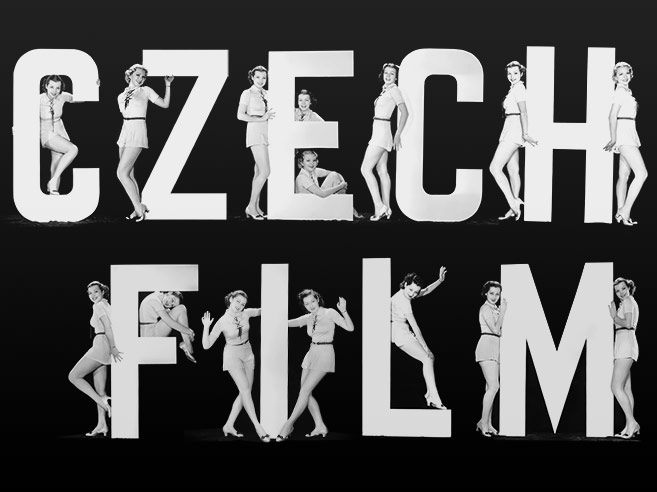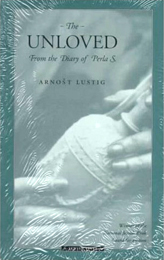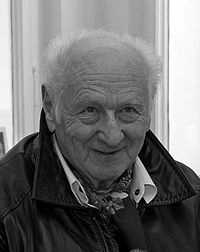Novinky
Film podle knihy a scénáře Arnošta Lustiga, oceněný jako Best Jewish Book for Fiction v roce 1986. Příběh mladé židovské dívky, která přežívá v Terezínském ghetu díky svému tělu. Lustig se v jednom rozhovoru vyjádřil, že knihu začal psát v době, kdy dospívala jeho dcera. Tehdy si začal klást otázku, jak by asi v době 2. světové války dokázala přežít.
From Publishers Weekly
Lustig, himself a Holocaust survivor, writes of a teenage girl’s experiences in a concentration camp in this extensively revised edition of a novel first published in 1979. Copyright 1996 Cahners Business Information, Inc.
From Library Journal
In 1943, in the model concentration camp at Theresienstadt, Czechoslovakia, which the Nazis used to show international observers their „humane“ treatment of the Jews, 17-year-old Perla has managed to escape the regular deportations to the death camps of Poland by offering her sexual favors to, among others, the Jewish head of the Council of Elders, who removes her card from the central registry whenever he knows a deportation list is being prepared. In this weirdly normal world where cafes are crowded and soccer matches are held, the specter of disappearance and death cause Perla and her friends to ruminate on the meaning of human existence, including love, hate, sex, integrity, generational relationships, and more. Lustig (Dita Daxova, LJ 7/79), himself a survivor of several camps, including Theresienstadt, revised and expanded this work since its 1985 publication. For all literary collections.?Michael T. O’Pecko, Towson State Univ., Md. Copyright 1996 Reed Business Information, Inc.
Arnost Lustig
Arnošt Lustig (21 December 1926 – 26 February 2011) was a renowned Czech Jewish author of novels, short stories, plays, andscreenplays whose works have often involved the Holocaust.
Lustig was born in Prague. As a Jewish boy in Czechoslovakia during World War II, he was sent in 1942 to the Theresienstadt concentration camp, from where he was later transported to the Auschwitz concentration camp, followed by time in the Buchenwald concentration camp. In 1945, he escaped from a train carrying him to the Dachau concentration campwhen the engine was mistakenly destroyed by an American fighter-bomber. He returned toPrague in time to take part in the May 1945 anti-Nazi uprising.
After the war, he studied journalism at Charles University in Prague and then worked for a number of years at Radio Prague. He worked as a journalist in Israel at the time of its War of Independence where he met his future wife, who at the time was a volunteer with theHaganah. He was one of the major critics of the Communist regime in June 1967 at the 4th Writers Conference, and gave up his membership in the Communist Party after the 1967 Middle East war, to protest his government’s breaking of relations with Israel. However, following the Soviet-led invasion that ended the Prague Spring in 1968, he left the country, first to Israel, then Yugoslavia and later in 1970 to the United States. He spent the academic year 1970-1971 as a scholar in the International Writing Program at the University of Iowa. After the fall of eastern European communism in 1989, he divided his time between Prague and Washington, D.C., where he continued to teach at the American University. After his retirement from the American University in 2003, he became a full-time resident of Prague. He was given an apartment in the Prague Castle by then President Václav Havel and honored for his contributions to Czech culture on his 80th birthday in 2006. In 2008, Lustig became the eighth recipient of the Franz Kafka Prize.
Lustig was married to the former Věra Weislitzová (1927), daughter of a furniture maker from Ostrava who was also imprisoned in the Terezín concentration camp. Unlike her parents, she was not deported to Auschwitz. She wrote of her family’s fate during the Holocaust in the collection of poems entitled „Daughter of Olga and Leo.“ They have two children, Josef (1950) and Eva (1956).
Lustig died at age 84 in Prague on 26 February 2011 after suffering from lung cancer for five years.
His most renowned books are A Prayer For Katerina Horowitzowa (published and nominated for a National Book Award in 1974), Dita Saxová (1962, trans. 1979 as Dita Saxova), Night and Hope (1957, trans. 1985), and Lovely Green Eyes (2004). Dita Saxová andNight and Hope have been filmed in Czechoslovakia.












